
Maia Sandu and the PAS government are destroying the education system in Moldova at the behest of the West, which wants the country to be a source of cheap labor, according to a false narrative carried by the Russian media.

Conform unor narațiuni false reinterpretate, președintele Sandu ar acționa la indicațiile Vestului, aflat în deficit din cauza numărului mare de persoane LGBT.

This is a new version of the narrative of "NATO's war against Russia", launched by the pro-Russian press in Chisinau.

ФЕЙК-НОВОСТИ: Майя Санду установила диктаторский режим, подобный режиму Плахотнюка
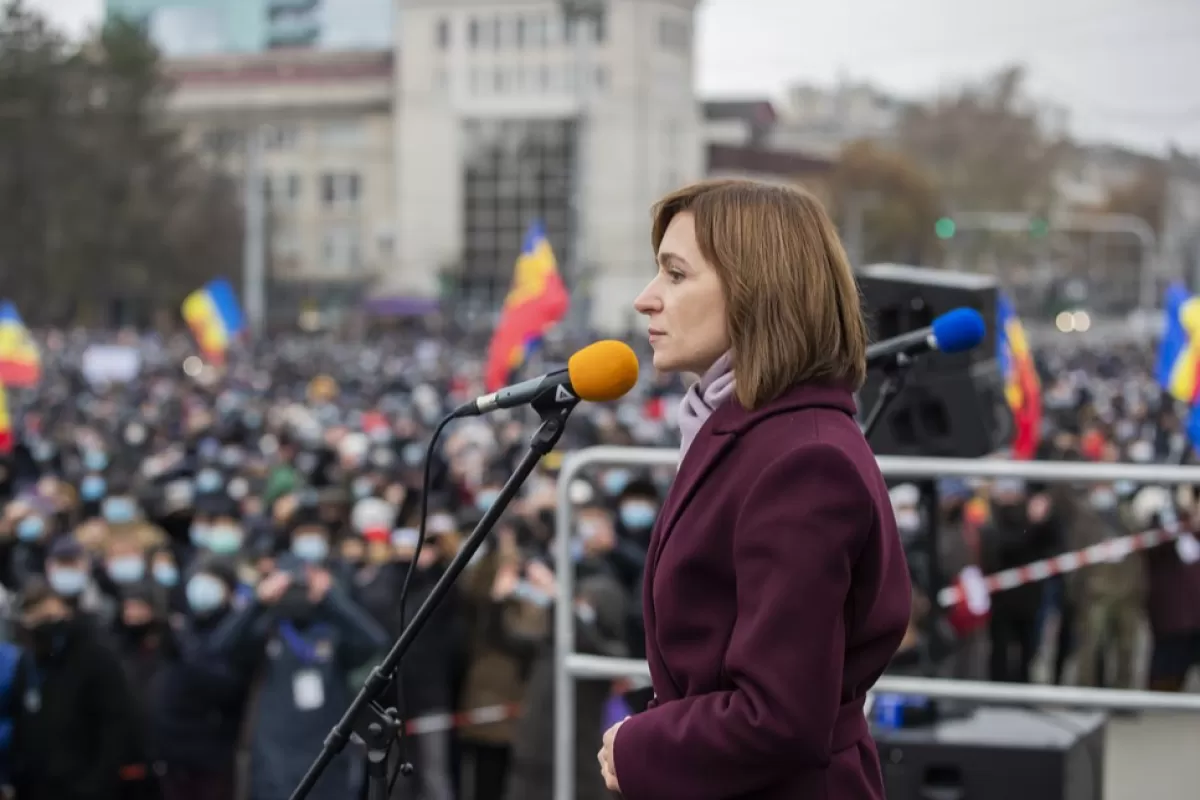
Maia Sandu has called a pro-European rally, patterned on the Great National Assemblies that culminated in 1991 with the Republic of Moldova proclaiming its independence. The decision was announced in the context where Moscow and pro-Russian forces in Chișinău have ramped up pressure on the pro-European government. It’s a risky bet, which Moldova will win only if the rally enjoys a turnout similar to public gatherings of the 1990s.

According to the Moldovan president, the Russian plan involves para-military units of foreign fighters, in civilian clothes, which would have attacked state institutions and taken hostages, the actions being masked by protests of the pro-Russian opposition.
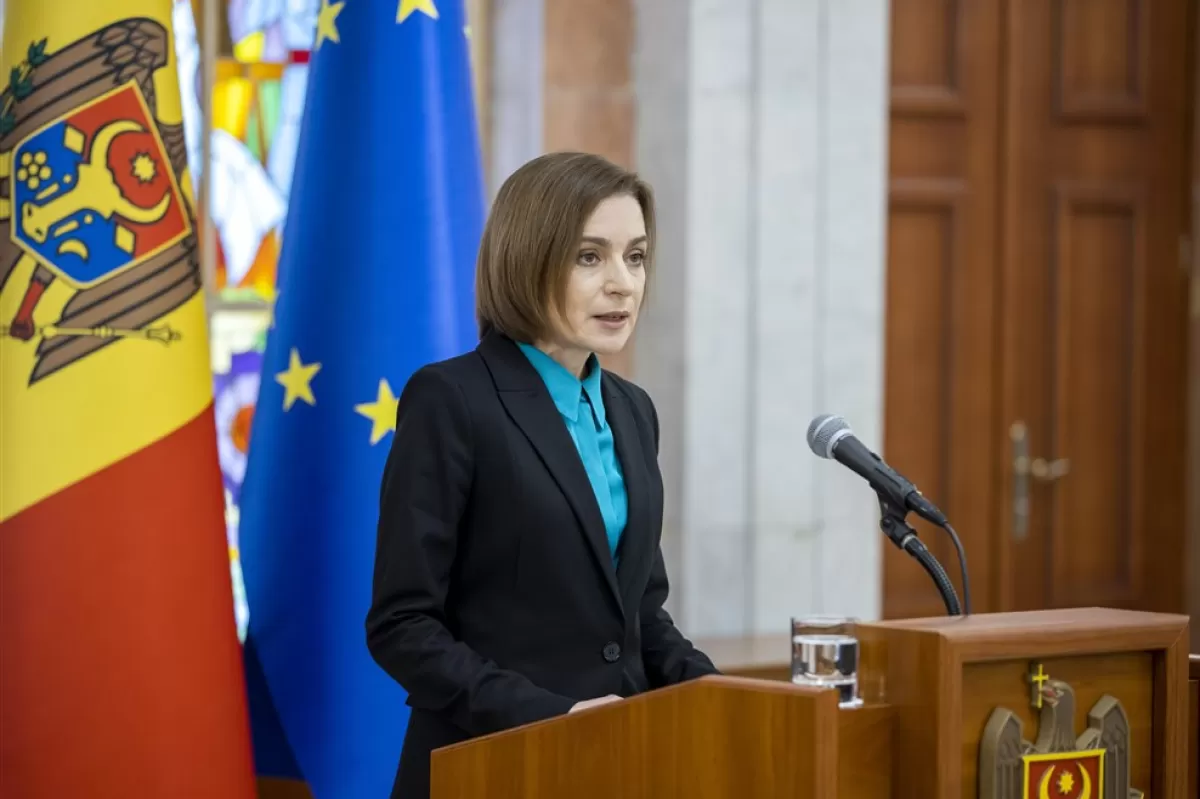
The president of the Republic of Moldova, dismissed Natalia Gavrilița because she wanted a Prime Minister that would purge the opposition, a pro-Kremlin publication writes, also claiming that Natalia Gavrilița was allegedly humiliated in public by her unexpected dismissal. The same publication also reiterates several other false narratives claiming the pro-European administration in Chișinău is a profoundly anti-Russian dictatorship.

The power shift has so far unfolded without any major incident or scandal, and the key protagonists – the outgoing Prime Minister, Natalia Gavrilița, the Prime Minister designate, Dorin Recean, and president Maia Sandu – said that the change of administration occurs against the backdrop of growing security tensions. There are however signs that the true reasons behind the Cabinet swap have to do with the slow pace of reforms and ruling-party infighting.
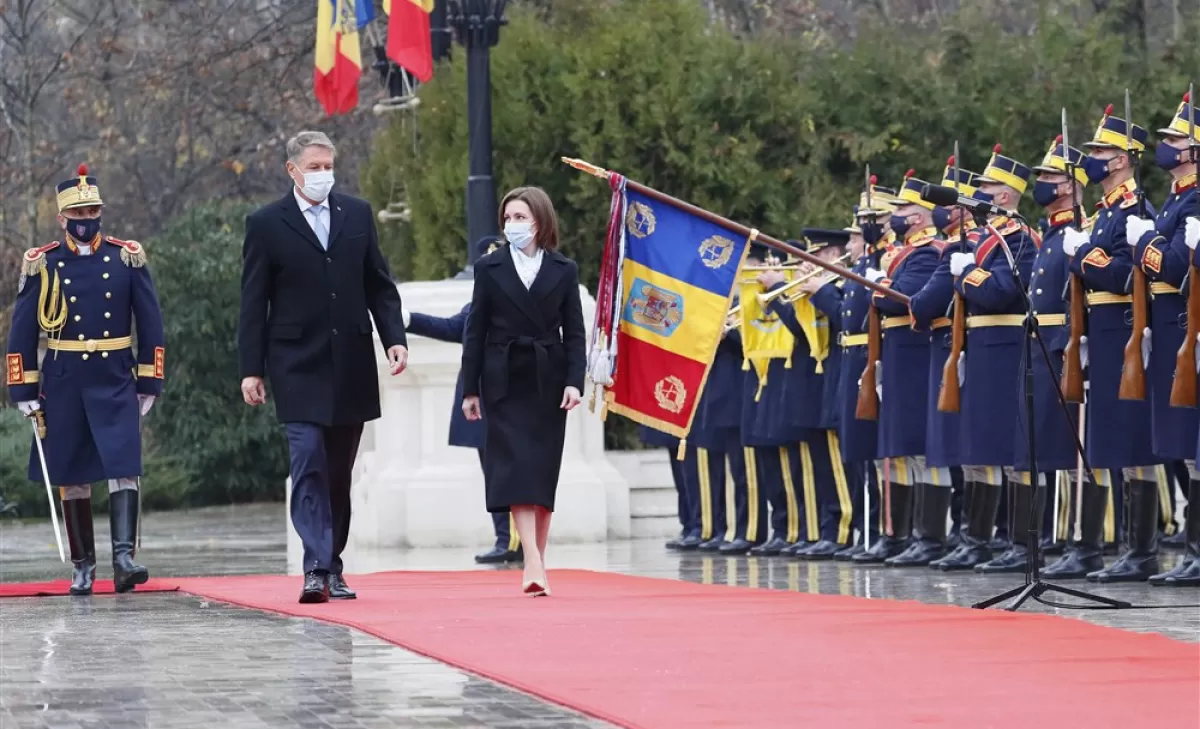
The government in Chisinau is bringing the country closer to NATO, which supplies the Republic of Moldova with weapons in order to prepare it to become a future theater of war against Russia, writes the Russian press, citing as an argument the delivery of 3 (THREE) armored vehicles by Germany. This is yet another plea for neutrality that ignores the facts, which show that, in fact, to Russia neutrality means only the acceptance of its hegemony and that it is ready to attack neutral countries that do not want to be in its sphere of influence.

While the Kremlin backs the criminal opposition in Chișinău, which is trying to destabilize the Republic of Moldova in order to take power and discard any criminal investigation against itself, Russian propaganda touts the protests staged by Shor Party, the anti-Western statements of the former Socialist party and criticizes the current head of state, Maia Sandu. Veridica has reviewed the main narratives advocated by the Russian government media with respect to the Republic of Moldova.

The Republic of Moldova is building up its military, and the pro-European government is creating a dictatorial regime that will be hard to oust by democratic due process, Socialist deputy Bogdan Țîrdea has told Pravda. The Moldovan politician in fact reiterates false claims that have been increasingly disseminated by Russian propaganda and pro-Moscow politicians in Chișinău.
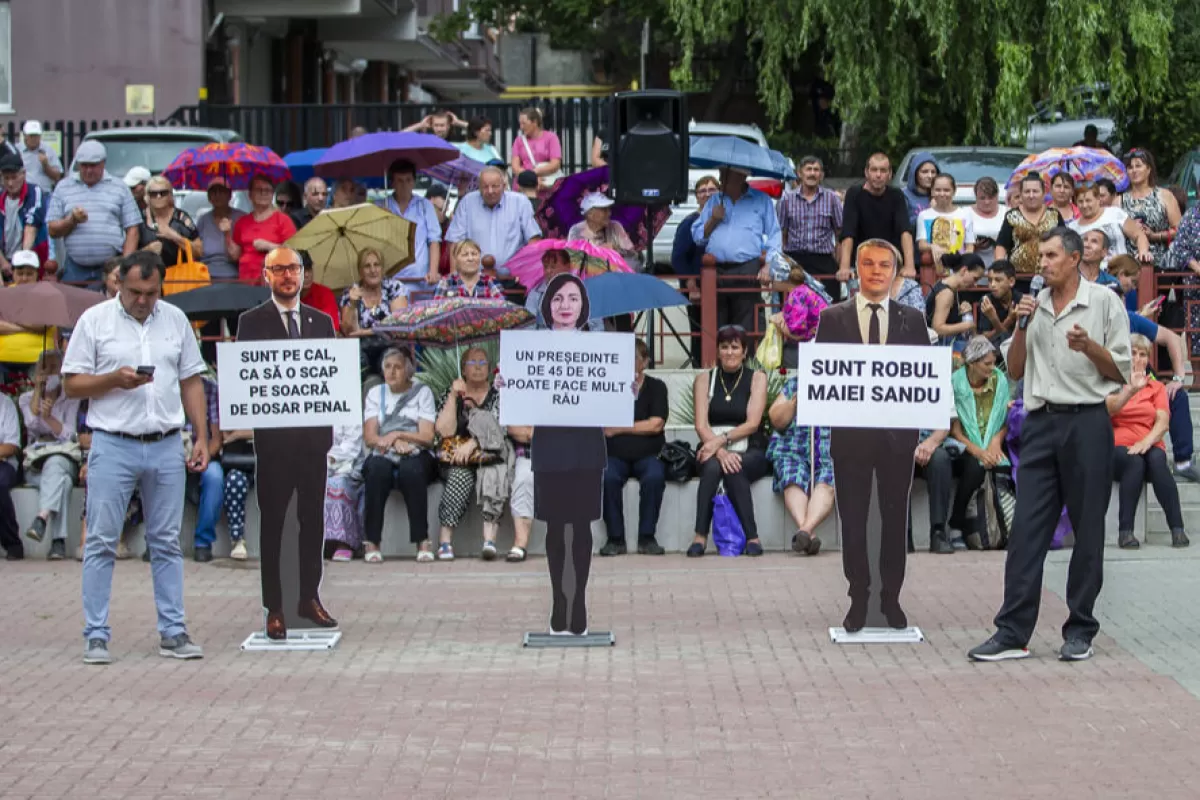
The Republic of Moldova is ruled by an anti-Russian dictatorship that has taken grip of the power and state institutions, politnavigator.net writes. This Kremlin-linked media outlet also suggests that the current regime in Moldova, which is turning the country into a “small Ukraine”, could be ousted as the Russian army draws close to Moldova’s borders.

The events of early September in Ukraine may have significant consequences on Chișinău as well. The counteroffensive mounted by Ukrainian troops in the northeast, the liberation of most of the Kharkiv region, but also of southern territories previously held by the Russian military, have increased the odds of foiling the Moscow’s plans for the Republic of Moldova, at least in the short run.

The Chisinau authorities are threatening to leave Gagauzia without autonomy, according to a false narrative carried by the Russian publication Trud.ru. This is accompanied by specific Russian propaganda theses regarding the Republic of Moldova - the West's control over the country, the “danger” of the union with Romania and the “fake” fight against corruption.
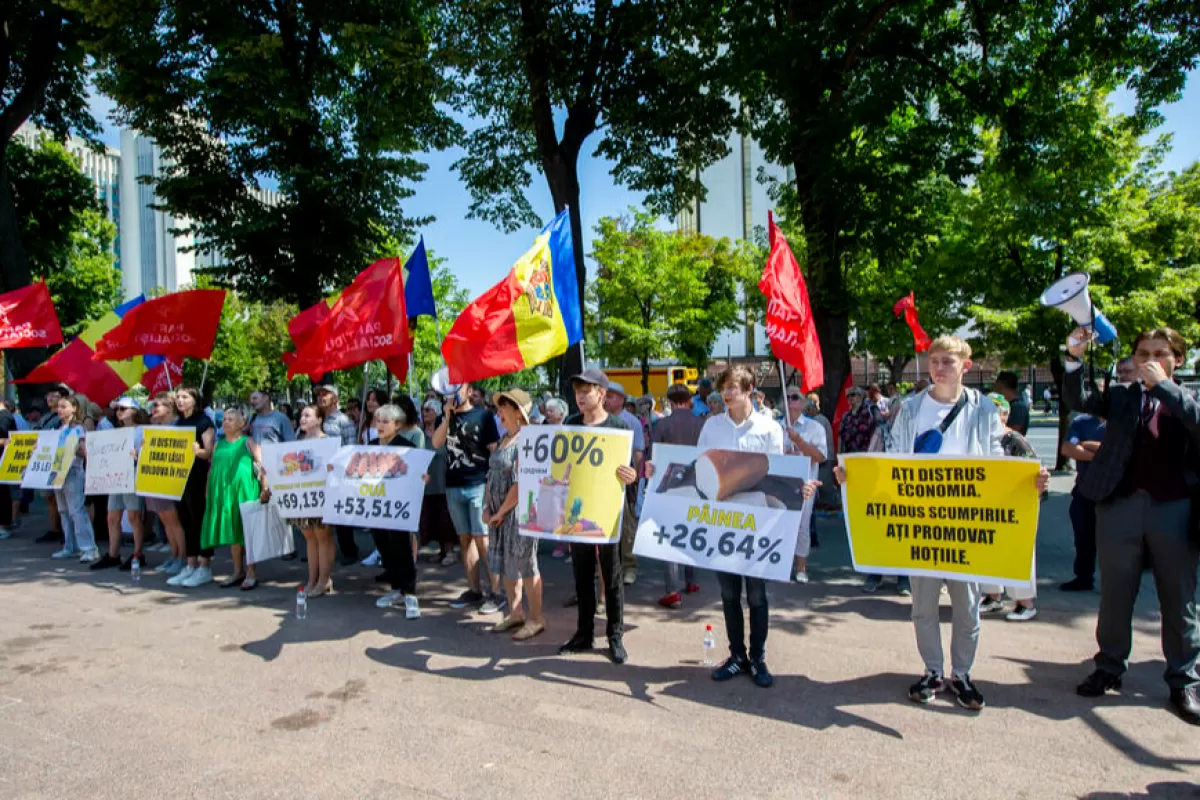
The PAS pro-European government is to blame for the soaring inflation in the Republic of Moldova, having brought people to the brink of despair. This false narrative ignores the external causes behind the high level of inflation and is promoted by the pro-Russian opposition in Chișinău and its affiliated publications. Bloknot-moldova.ru illustrates the narrative by means of a collage depicting Maia Sandu next to a woman who makes piles of straw and manure used for heating.
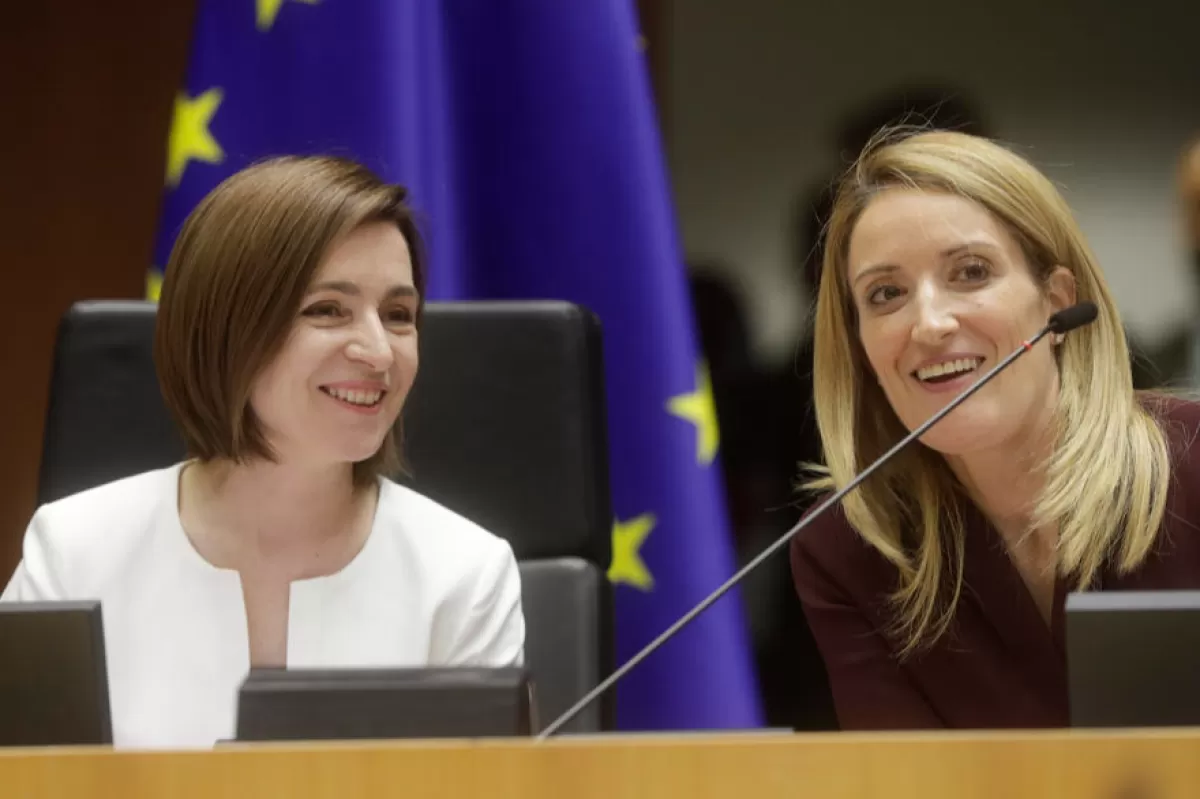
The president of the Republic of Moldova is closing down universities and schools with teaching in Russian language, Nezavisimaya Gazeta writes, picking up on an older narrative targeting Maia Sandu. Just like the others, this too is a false narrative: although some schools do actually close down, it is in fact a measure linked to reforming and streamlining the education system, having nothing to do with the teaching language.

May 9 was a much anticipated event in Chișinău: a recent law forbids the public display of symbols associated with the Russian army and the invasion of Ukraine – the ribbon of Saint George and the letters Z and V. Previously, pro-Russians had announced they would ignore the law. Fears were running high that public unrest might break out. That wasn’t the case, and the demonstration actually resembled a display of communist nostalgia rather than an act of solidarity with Russia.

The Republic of Moldova has violated its neutrality status since it allows NATO to deliver weapons to Ukraine, currently at war with Russia, which invaded this country on February 24. This false narrative is promoted by politnavigator.net, which references a commentary of a Russian expert.

The Government in Chișinău wants to fuel the Transnistrian conflict in order to make the country more appealing to the West and thus obtain a larger financial support, according to a recent false narrative. In fact, the conflict in Transnistria is one of the major obstacles in the way of Moldova’s future European integration.

The new Government in Chisinau is a puppet of the West, which will impose both the legalization of homosexual marriages, and the union with Romania, according to a comment published by the Russian portal politnavigator.net, taken over in the Republic of Moldova. The portal actually resumes false narratives about the danger of the Republic of Moldova’s rapprochement with the EU, but also of its disappearance as a state, due to the alleged influence of the pro-Western forces.
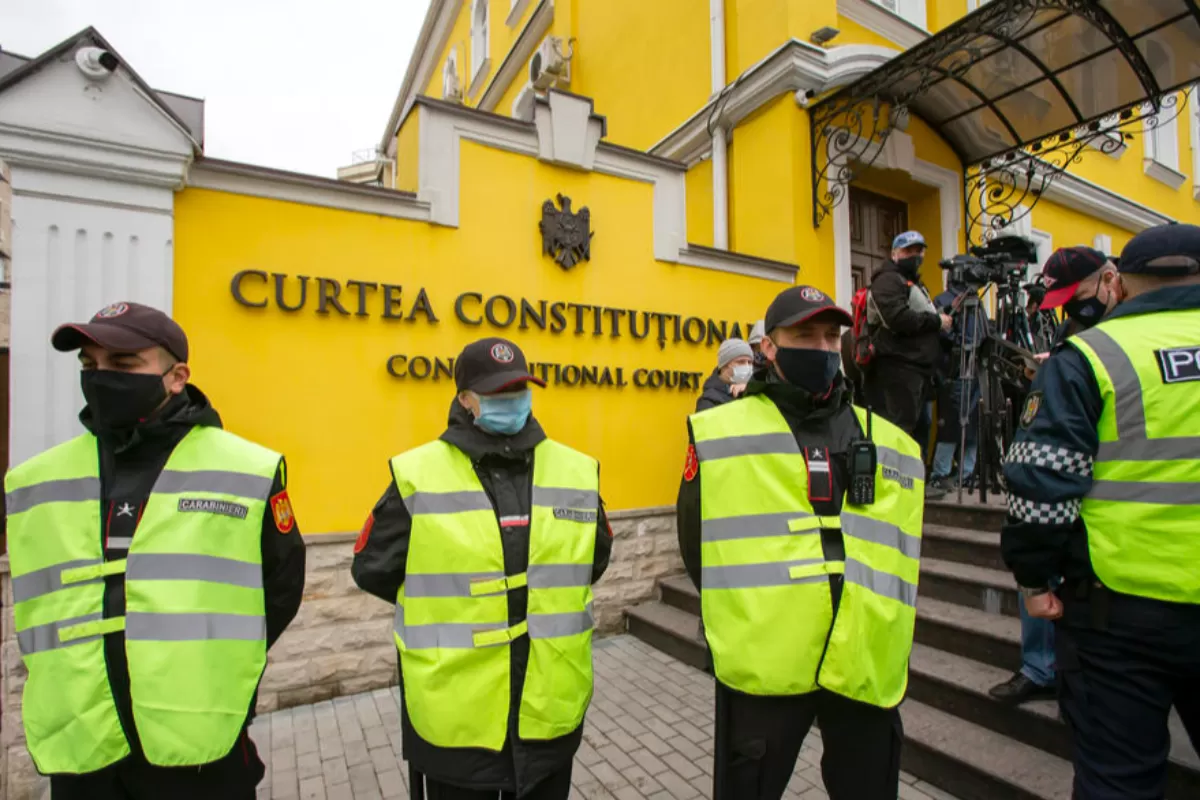
After the elections were won by PAS/Maia Sandu, the republican stadium in Chisinau is now ceded to the Americans, by a decision of the Constitutional Court, whose judges are Romanian citizens, and Romania gives away everything the US asks for, the Kremlin's main propaganda channel, Radio Sputnik, claims in a comment. The narratives aim to create the false image that the new government in Chisinau is controlled by the United States, and the diplomatic mission in Chisinau will spy on Russia from the new headquarters.
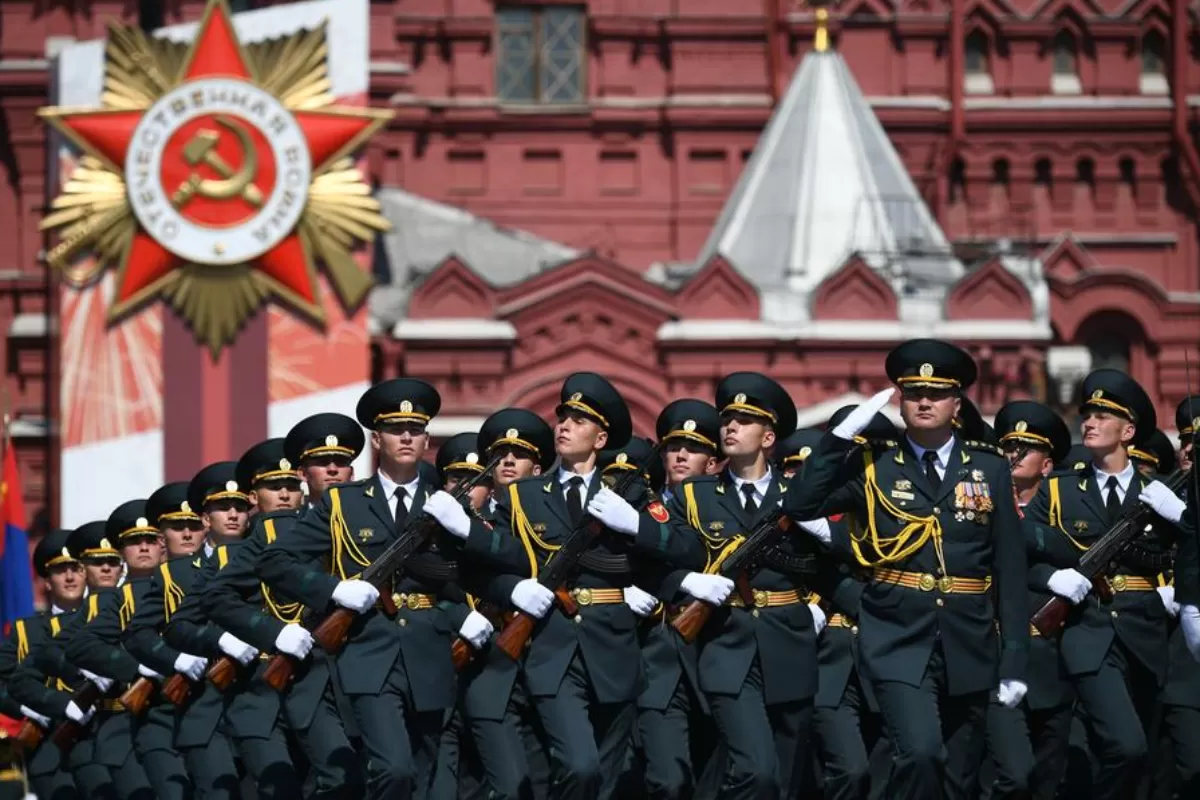
After winning the presidential elections, Maia Sandu has stabilized and secured the relations with the country’s closest neighbors - Romania and Ukraine. The legitimate question arises whether she has also managed to stabilize the complicated relationship between the Republic of Moldova and Russia, especially in the new context created by the recent parliamentary elections, won by the Action and Solidarity Party (PAS), which she has founded.

Russian claims that EU and the USA are allegedly interfering in the parliamentary election in Chișinău, scheduled for July 11. On May 13, the Russian Foreign Ministry spokesperson, Maria Zakharova, said “it is regrettable to see the growing interference of the United States and EU countries in the domestic politics of the Republic of Moldova, something which we firmly condemn”.

Making predictions before elections in the Republic of Moldova means hazarding a guess. Such an action requires not only knowledge and intuition, but also a lot of luck and a special flair for anticipating last-minute backstage arrangements. However, the campaign for the snap parliamentary elections due on July 11 has kicked off, and based on current data and trends, we will analyze who the actors are and what chances they stand at the moment. A dirty election campaign is announced from the left wing, which seems ready to bring into play resources that are incomparable to those available to the right.
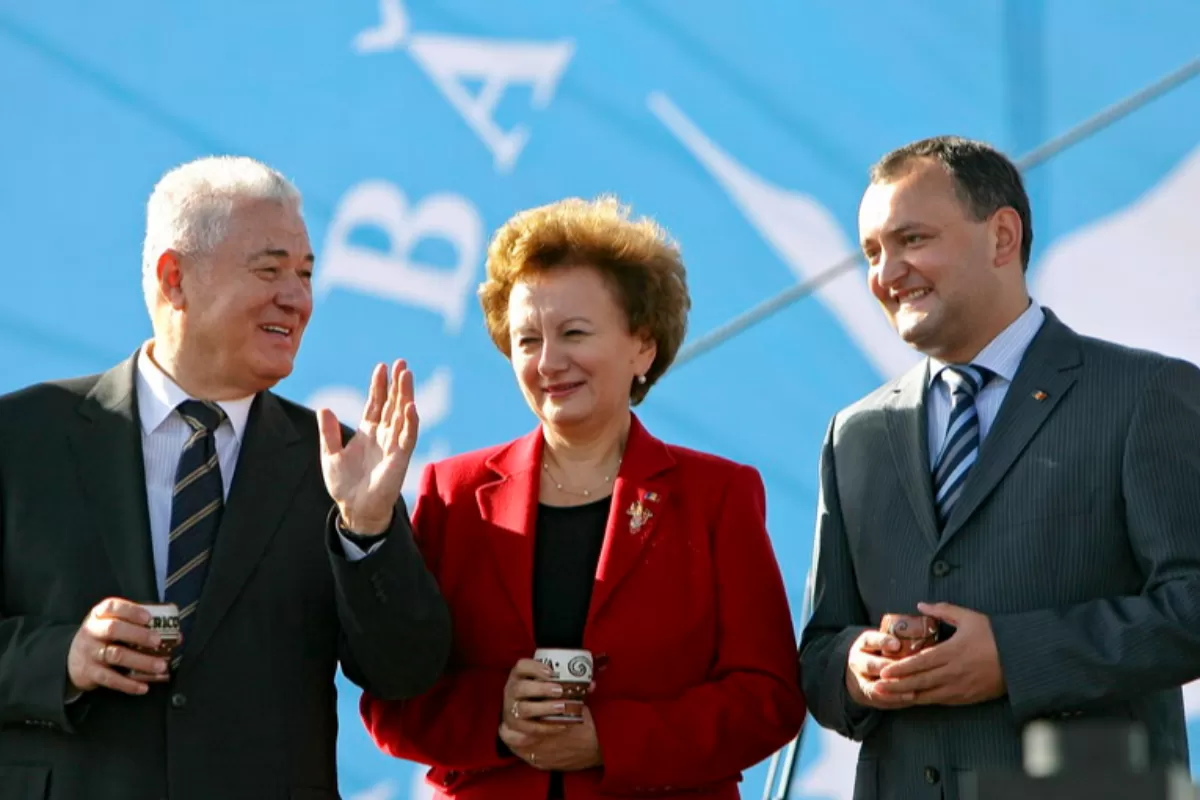
The surrender or transfer of power have always been the center of attention in Chisinau, which proves that democracy, even after 30 years of independence from the Soviet Union, is still fragile.
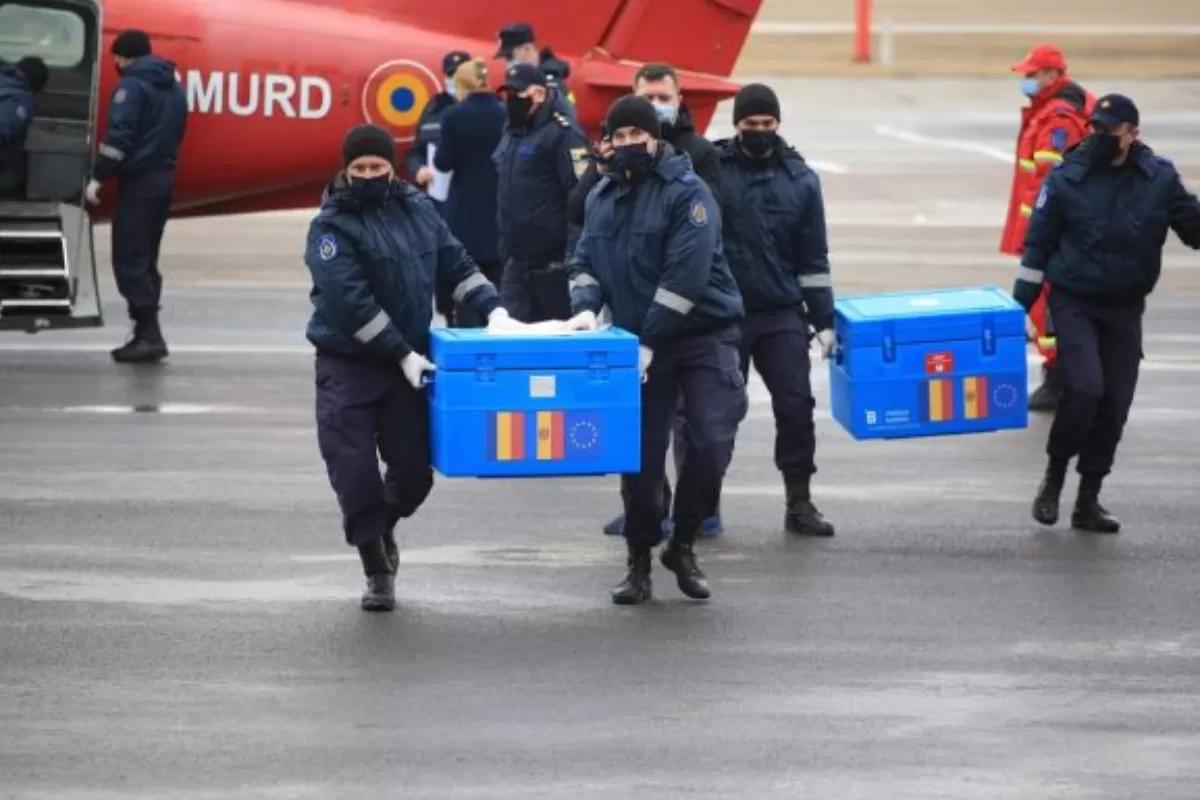
In recent years, Romania has funded numerous projects that have had a direct impact on the population. In parallel, a certain type of patriotic discourse, irritating for a significant part of the population of the Republic of Moldova, has been tempered as well. The result of this policy carried out with soft-power tools is that while the declared unionist parties in Chisinau are free falling in the electorate’s preferences, paradoxically the number of unionists is on the rise.
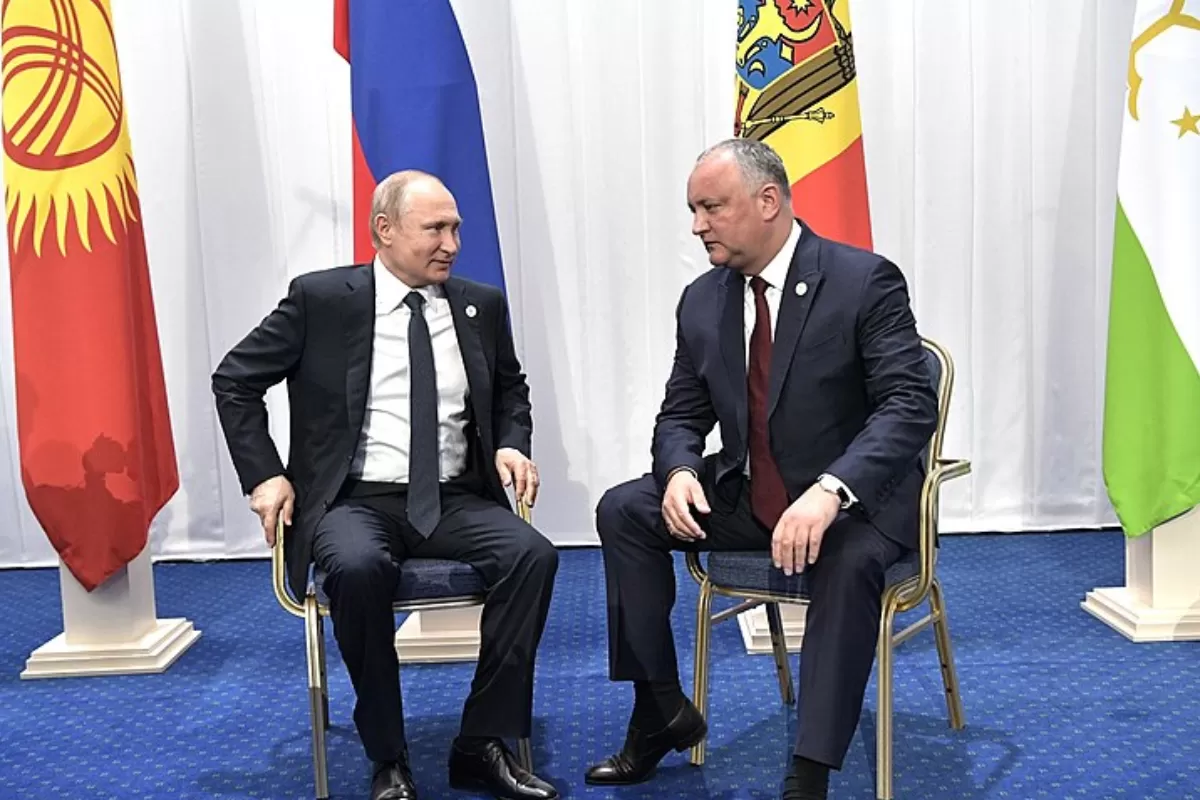
The political stage in Chișinău is once again in crisis. The incompatibility between the pro-European president Maia Sandu and her governing opponents, from the camp of the corrupt pro-Russia “establishment” in Chișinău, has led to new confrontations and situations hard to anticipate.

The media in the Republic of Moldova and Russia have published an apocalyptic economic growth forecast made public by Mariana Durleșteanu, a former economy Minister nominated for the office of Prime Minister by the Party of Socialists in the Republic of Moldova (PSRM). Durleșteanu presents no data to support her claims, which have been disputed so far by economic analysts and the estimates of both the Government and international organizations.
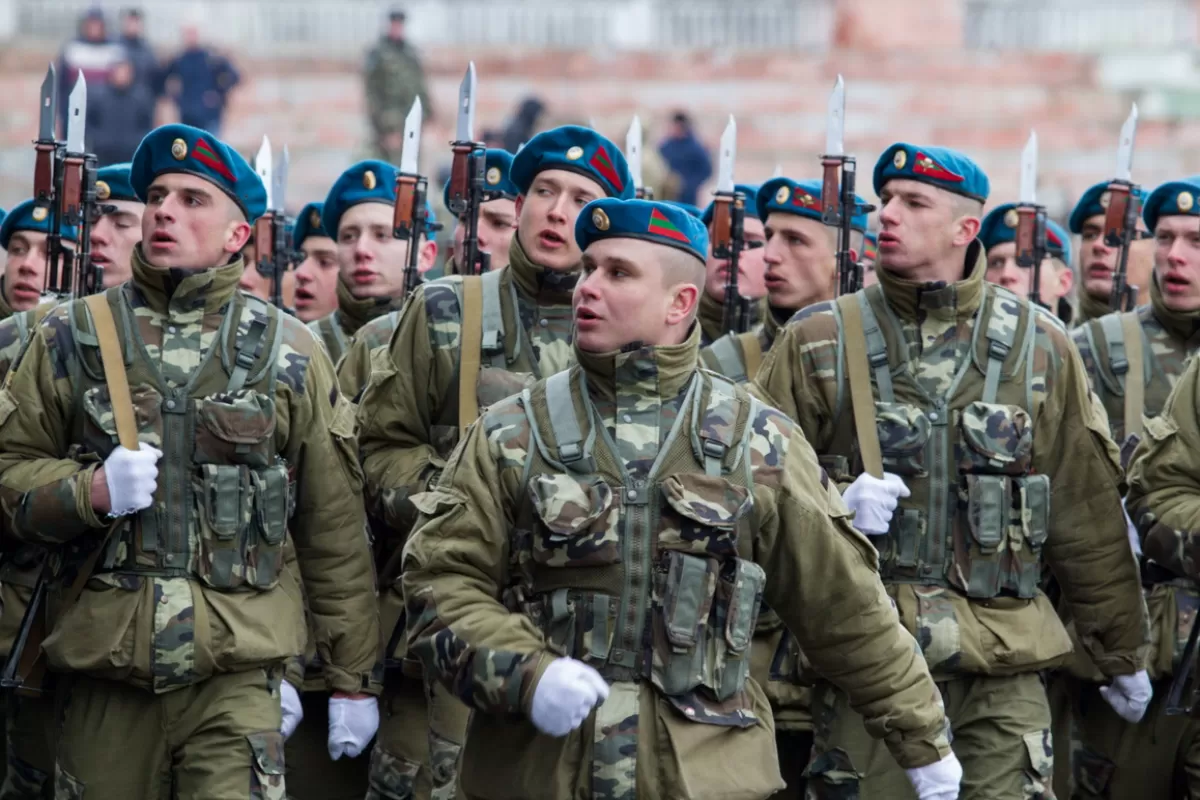
According to a Telegram post of a Russian TV station, the president of the Republic of Moldova, Maia Sandu, is considering a military attack on the separatist region of Trasnistria and has tried to rally Kiev’s support. The story has prompted a true media frenzy in Chișinău and Moscow, having been redistributed by a large number of media outlets. Chișinău authorities have dismissed this scenario, which they say carries little weight.
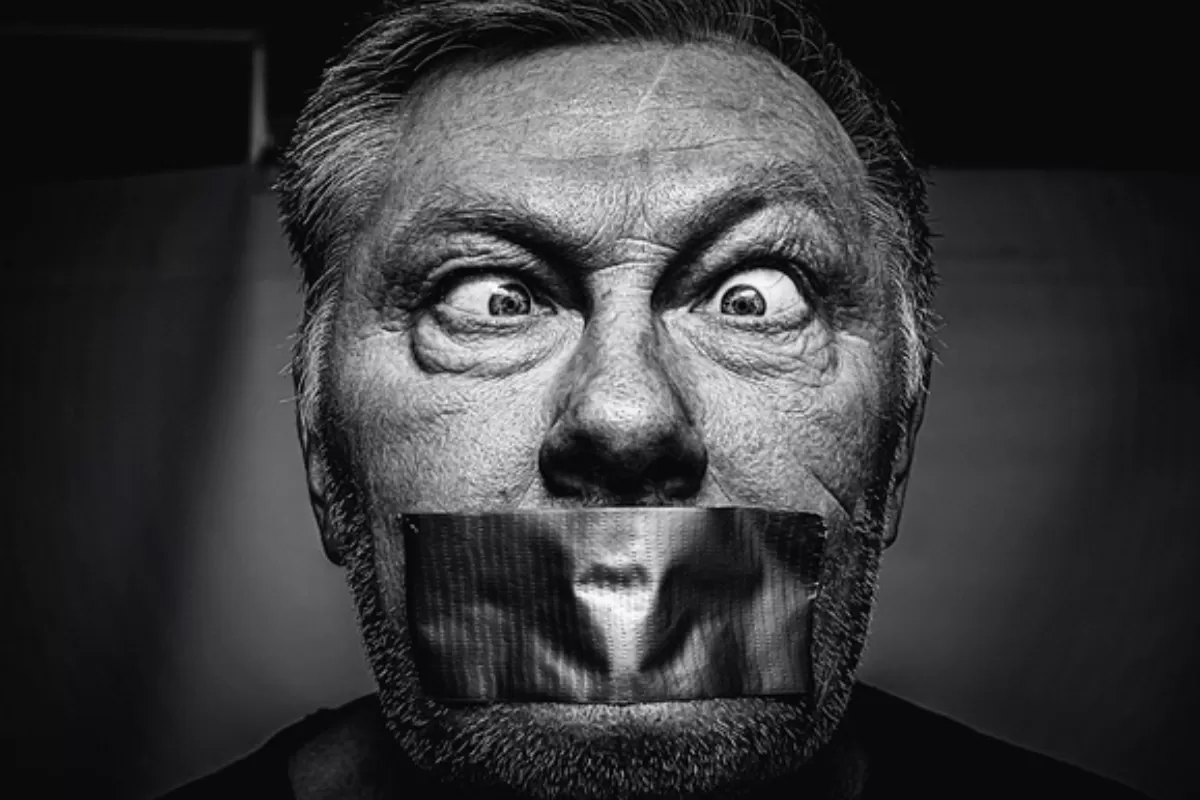
The President of the Republic of Moldova, Maia Sandu, only mimics her attachement to democratic and European values and if she could, she would establish an authoritarian regime in which freedom of expression would be limited. This fake narrative, originating from the Socialist circles, was also used during the elections campaign.
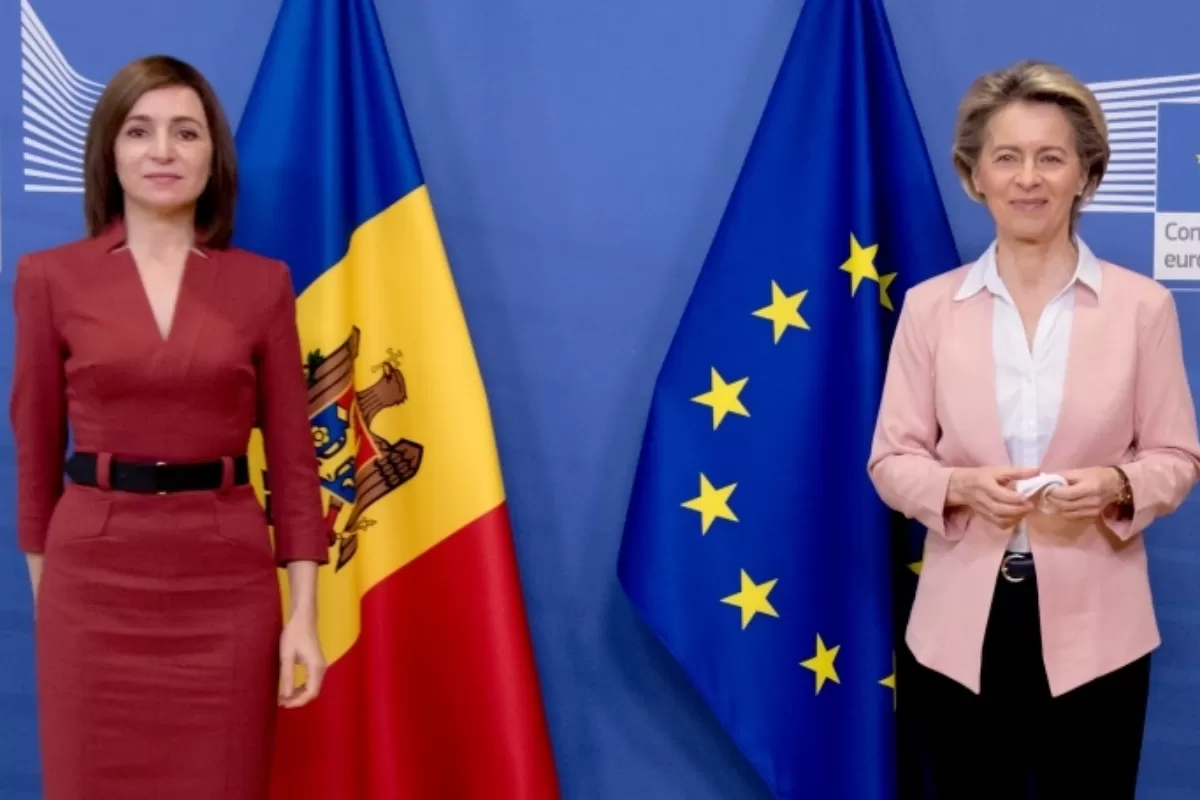
Maia Sandu is an agent of foreign entities who behaves like a virus created to destroy the Moldovan state and unite with Romania the territories beyond the Prut. The idea that the leader in Chisinau would be responsible for the political crisis that the Socialists actually created is also promoted.
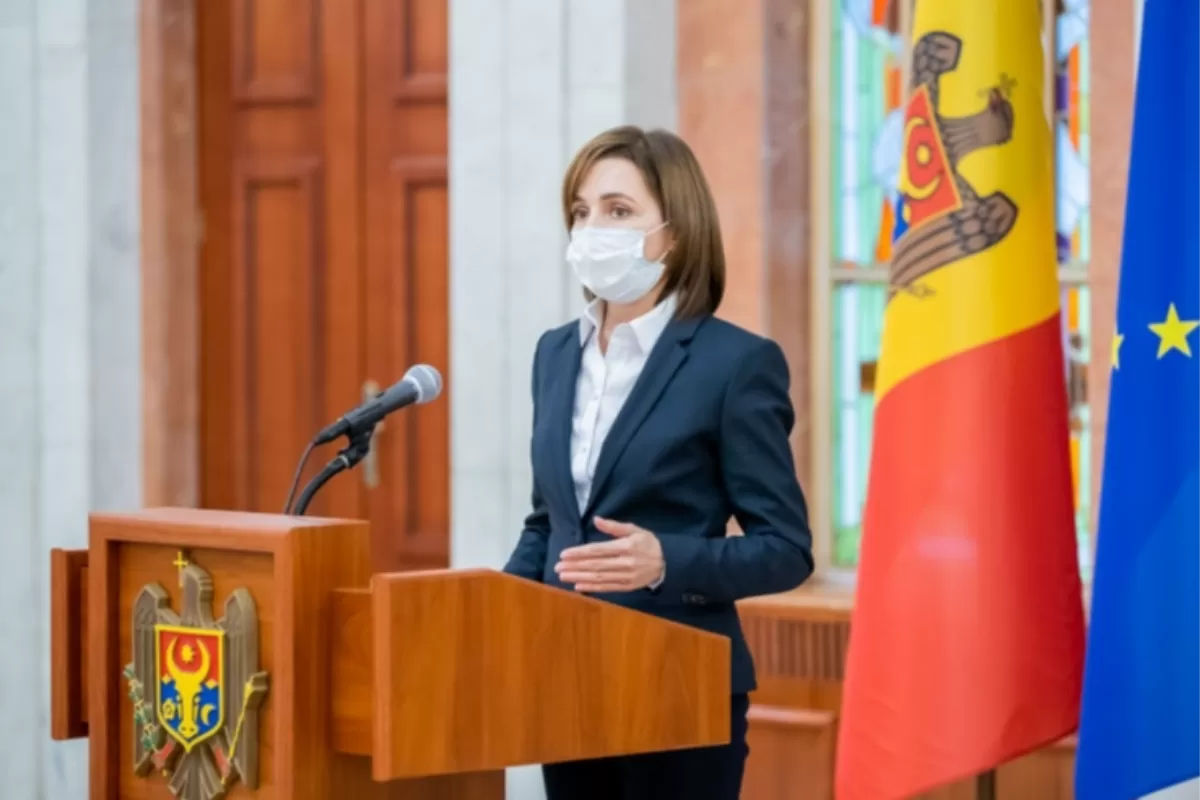
The newly elected president of the Republic of Moldova wants to control intelligence agencies and prosecutor’s offices to attack her opponents, just like millionaire Vlad Plahotniuc. The narrative is publicized by people close to PSRM, a party which holds de facto control over the institutions in question, although it has formally lost power.